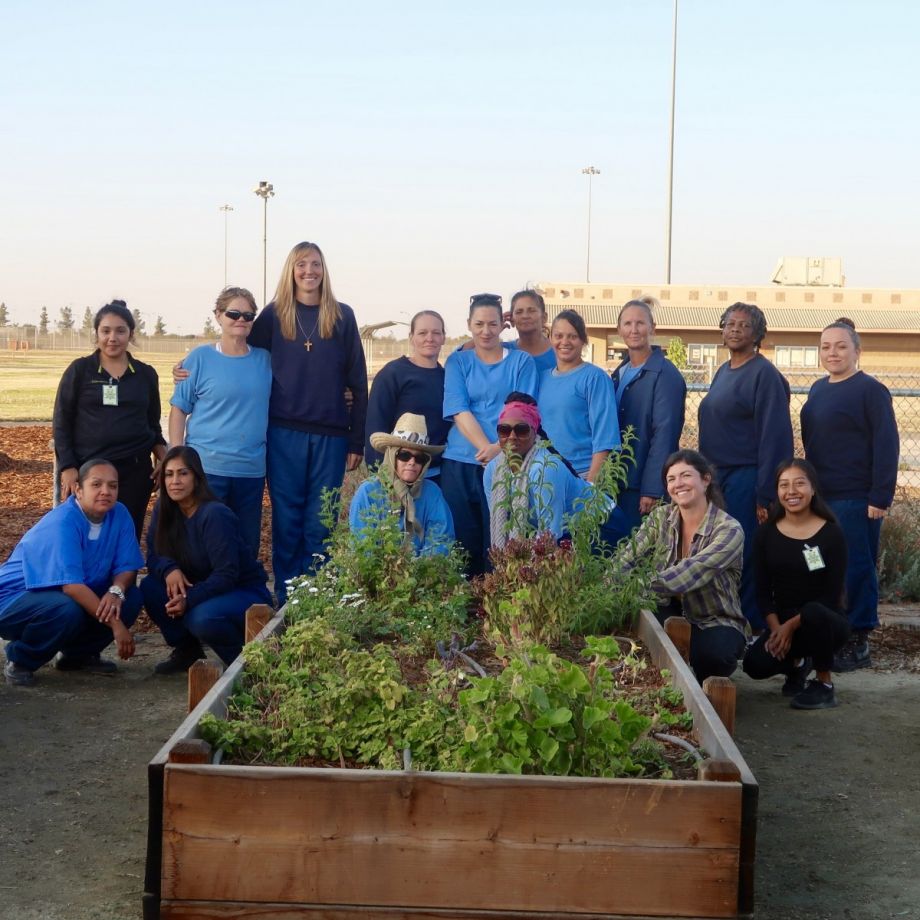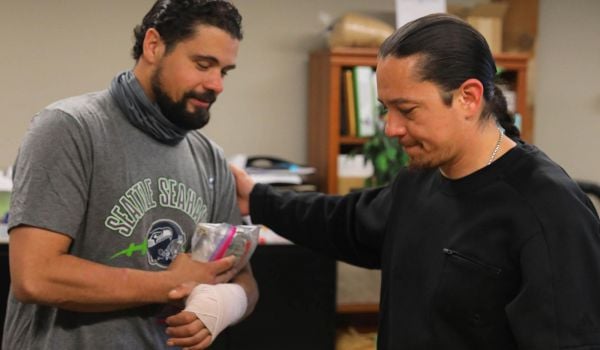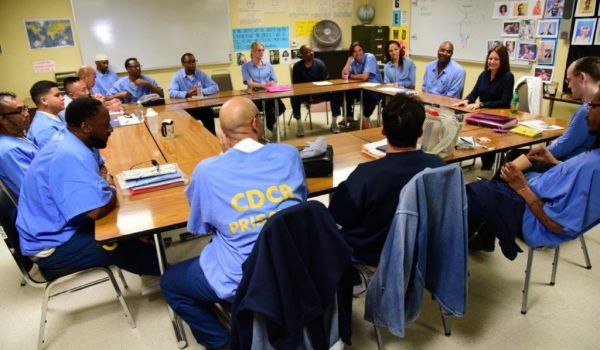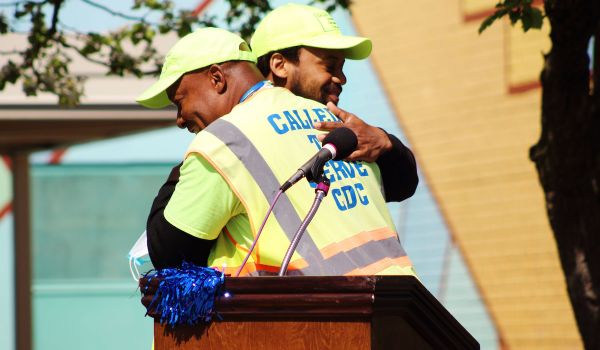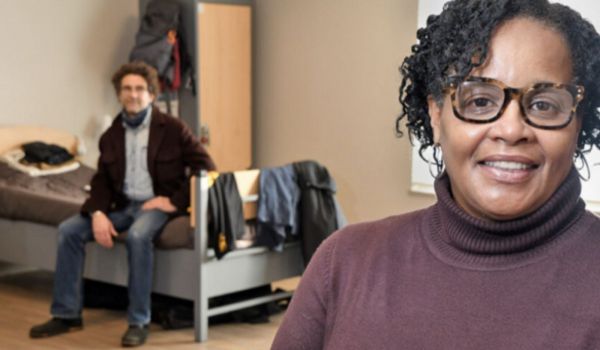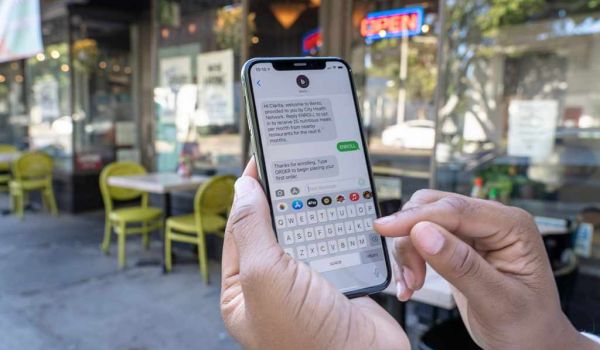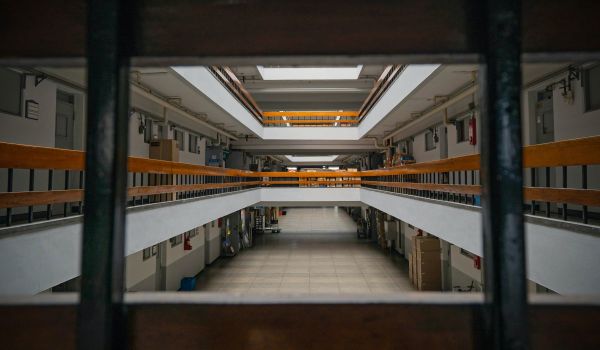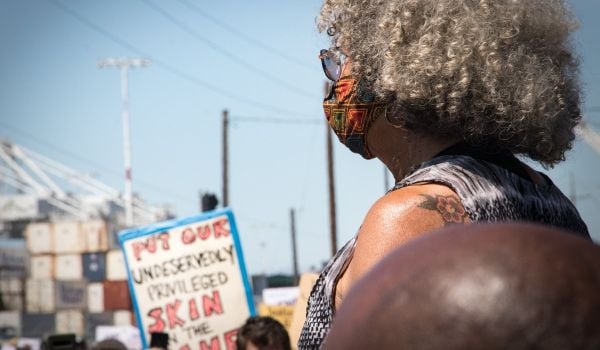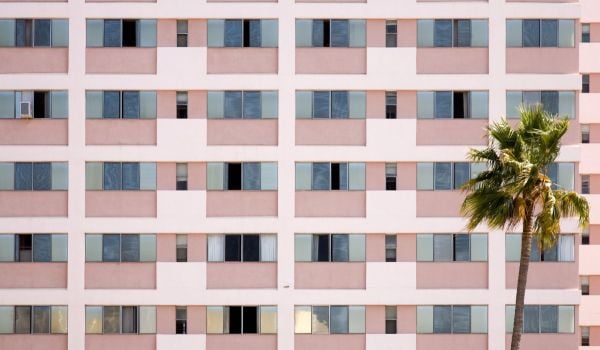During the 31-year span of Jamala Taylor’s incarceration, he spent 15 years in solitary confinement at California’s Pelican Bay State Prison. After participating in the widespread hunger strikes to protest the state’s solitary confinement practices, he transferred to Lancaster State Prison and signed up to participate in the Insight Garden Program, which connects incarcerated people to hands-on gardening and landscaping training.
“I had been in solitary for so long — just metal and concrete, no natural sunlight, windows, grass, trees,” he says. “It was a terrible experience. So when I did get out and get to general population, I’m thinking that I just want to put my hands in some mud.”
While Insight Garden Program was founded to give incarcerated people skills they can use on the outside paired with the more personal “inner gardening” of the self, the pandemic marked a major transition for IGP. Now, it focuses on not just job training but a holistic reentry program for participants coming home, including Taylor.
He was released from prison in December 2020 while COVID-19 positive; IGP went “above and beyond” to provide him toiletries and help navigate parole, transitional housing and family reconnections. This May, IGP hired Taylor as a reentry associate to do the same for others. This kind of support, Taylor attests, is “the difference between successful reintegration and recidivism.”
IGP staff have long known about the significant gaps in reentry support. “Sometimes men would be two weeks away from going home, and they had no idea what they were gonna do,” notes Amanda Berger, the acting co-director who ran the program at San Quentin, where IGP was founded. “It became obvious we would be a natural to fill that gap, because we develop the relationships before they go home, there’s a lot of healing, transformation and self-awareness through the program, then we can be by their side as they go through reentry.”
IGP received some funding in 2019 to develop an inside-outside reentry model where IGP prepares its participants as they reach their release date and activity supports them when they come home. The next year, IGP integrated reentry preparation into its gardening curriculum.
IGP also hired Gunner Johnson in February of 2020 as reentry coordinator for Northern California. (He was promoted to reentry manager this February.) The pandemic shutdown one month later, however, increased the urgency of reentry support — even as IGP was also scrambling to develop a correspondence curriculum that would ultimately reach 450 participants across 10 prisons.
The California Department of Corrections and Rehabilitation released thousands of people early due to COVID-19, but the state’s patchwork reentry system scrambled to secure transportation, housing, food and other services. Many people coming home had been exposed to or infected with the virus.
“It was really hard to find transitional housing” for returning citizens, Johnson recalls, “And we just had to not take no for an answer. Throughout COVID, we made sure none of our participants went homeless.”
Johnson, who is formerly incarcerated, worked with a small team of formerly incarcerated reentry coordinators to develop the model. IGP tracks its participants based on anticipated release date and reaches out in the last year of their incarceration. The program sends them a needs-based assessment, which covers topics like housing, education, employment and healthcare. IGP then maintains regular contact to help them address those needs.
The team developed resource sheets for the different counties people come home to. The team also provides gate pickups and a “reentry kit” upon release, a backpack with hygiene products and a prepaid cell phone. “We stay in very regular communication that first couple months,” Johnson says. The program doesn’t drop off its support. “It’s forever,” Taylor says. “It transitions from the material stuff as people build their own lives.”
IGP hosts Thursday check-in circles for men and Saturday check-ins for women. Nature-based programs continue out of prison: IGP hosted a hike this summer and is planning a fishing trip.
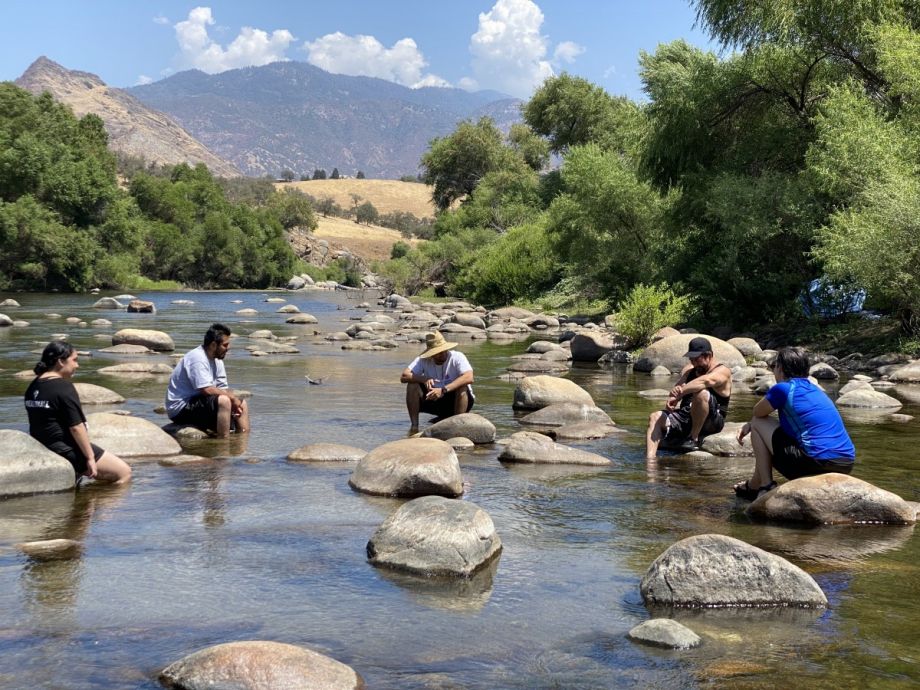
(Photo courtesy Insight Garden Program)
One of the most important components, staff members say, is that the effort is led by people who have been through the process. “The unique part is that you’re being supported by people like you,” Taylor says. “You’re talking to someone who’s lived it.” All the insight Taylor gained when he came home — navigating technology, securing stable housing, continuing his education — he now passes down through the program.
IGP has worked to meet the ever-growing needs around reentry. “Early on we noticed real gaps in service for women — the rates of incarceration for women are rising but services are few and far between,” notes Johnson. Last year the program extended support to all women and tramsgender individuals coming home from California prisons, not just those who participate with IGP.
In July the organization launched an ambitious $100,000 fundraising campaign to support its prison programming and further develop rapid-response reentry services. (This summer the organization has been able to resume most in-person programs.) On the reentry side, the team is already gearing up for a new challenge, partnering with a local organization in Sacramento for a developmental grant to transform a seven-acre lot into a community garden.
IGP is hosting an event promoting the project this month. “We’re in the development phase, meeting with the neighborhood to see what they would actually like,” Johnson says. IGP’s hope is to transform the land into a community garden with workforce training offerings like certification for master gardening.
“Big picture, our goal is to have transitional housing of our own,” Johnson envisions, “And it’d also have community gardens.”

Emily Nonko is a social justice and solutions-oriented reporter based in Brooklyn, New York. She covers a range of topics for Next City, including arts and culture, housing, movement building and transit.
Follow Emily .(JavaScript must be enabled to view this email address)

